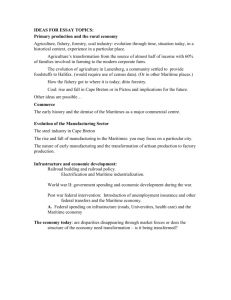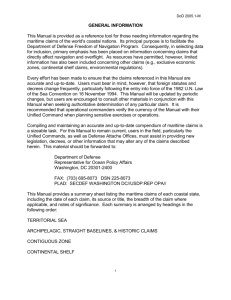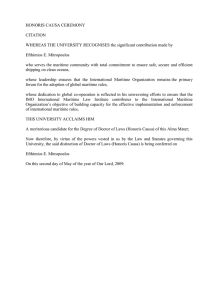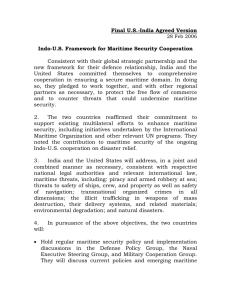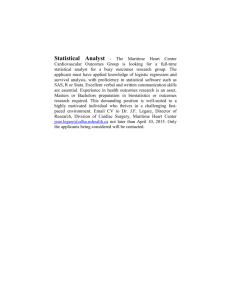Terminology used in the Accounting of the Maritime Mobiles Services
advertisement
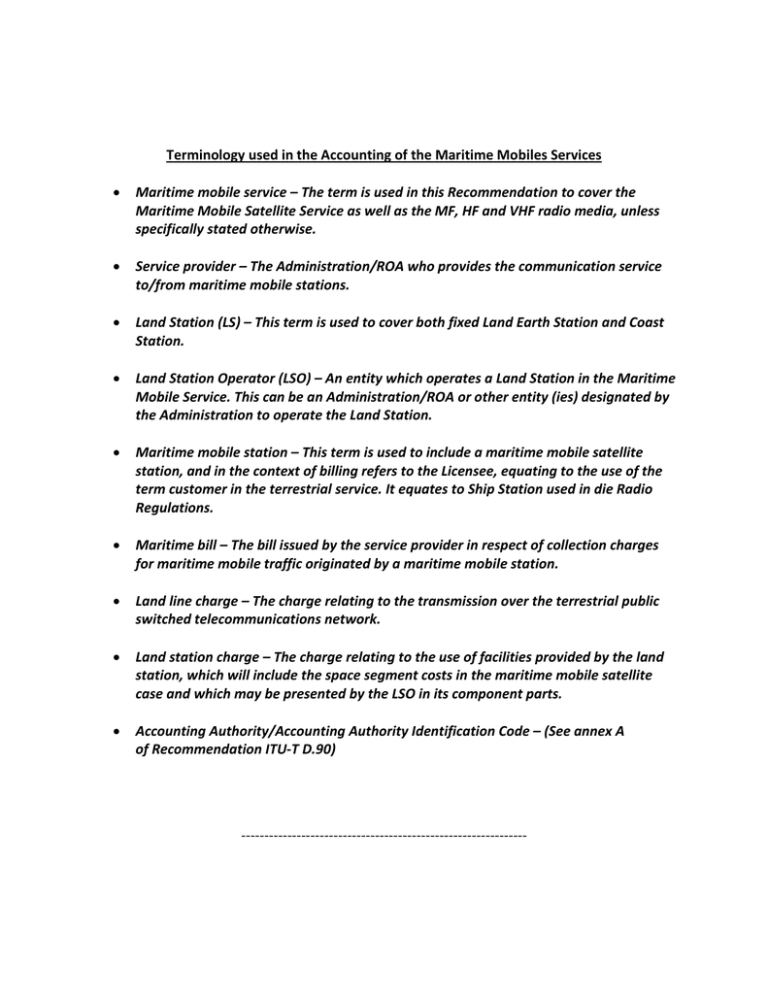
Terminology used in the Accounting of the Maritime Mobiles Services • Maritime mobile service – The term is used in this Recommendation to cover the Maritime Mobile Satellite Service as well as the MF, HF and VHF radio media, unless specifically stated otherwise. • Service provider – The Administration/ROA who provides the communication service to/from maritime mobile stations. • Land Station (LS) – This term is used to cover both fixed Land Earth Station and Coast Station. • Land Station Operator (LSO) – An entity which operates a Land Station in the Maritime Mobile Service. This can be an Administration/ROA or other entity (ies) designated by the Administration to operate the Land Station. • Maritime mobile station – This term is used to include a maritime mobile satellite station, and in the context of billing refers to the Licensee, equating to the use of the term customer in the terrestrial service. It equates to Ship Station used in die Radio Regulations. • Maritime bill – The bill issued by the service provider in respect of collection charges for maritime mobile traffic originated by a maritime mobile station. • Land line charge – The charge relating to the transmission over the terrestrial public switched telecommunications network. • Land station charge – The charge relating to the use of facilities provided by the land station, which will include the space segment costs in the maritime mobile satellite case and which may be presented by the LSO in its component parts. • Accounting Authority/Accounting Authority Identification Code – (See annex A of Recommendation ITU-T D.90) --------------------------------------------------------------

